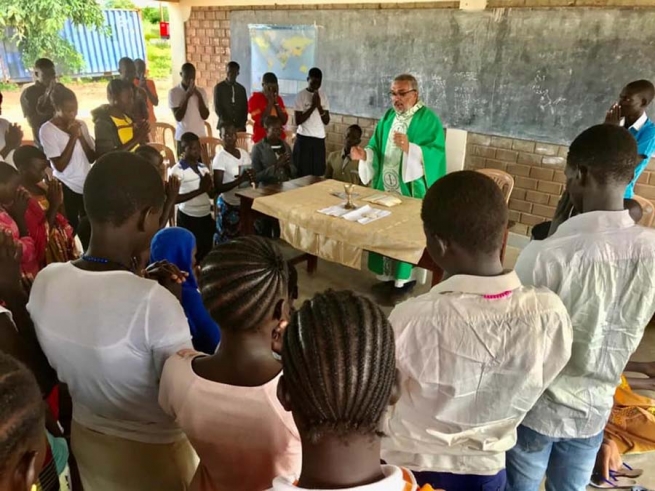56,000 survive in Palabek, most of them women and children who have fled from South Sudan. Fr Ubaldino Andrade, a Venezuelan Salesian from Caracas, has lived in Uganda for 3 years, after having been in Sierra Leone for 17 years, having also lived through phases of the war and the Ebola epidemic.
In Palabek, like the other Salesians, he shares the life of the refugees “24/7”. “Medical services,” he says, “are extremely scarce. One really doesn't know what to do if a person is sick; sometimes you suspect in some cases, but it is not really known if it is or not, and some people have died and it is not known if they died of coronavirus or something else.” He himself says he had “a very strong pneumonia”, contracted after giving extreme unction to a woman.
The refugees in the camp live “in conditions of great poverty, because when they fled they could only take a few things with them, some arrived dressed in rags, with torn and dirty clothes, and when they arrived they received tarps, blankets, kitchen utensils, a machete, and taken to a place where they have to start life over again.”
To avoid contagion, the Salesians have launched an awareness-raising campaign. They placed containers of soapy water and people were sensitized to wash their hands and keep their social distance. Moreover, thanks to the support of the Salesian Mission Office in Madrid, they have produced and distributed thousands of masks, as well as cleaning materials, containers, soap.
The Ugandan government has set up “a distance learning system, but there is no electricity here, let alone someone with a computer,” assures the missionary. For this reason “since the beginning of the crisis, with schools closed, some young refugees take their bicycles and go to the last corners of the camp with teaching materials and school aids to accompany children and young people, so that they do not lose the rhythm of school.”
In the Palabek camp, the Salesians have created 16 Christian communities for the celebration of the sacraments - which continue, in compliance with the norms -, plus four kindergartens and a vocational training school in which “more than 500 refugees have already been trained to become good farmers, hairdressers, tailors, masons and mechanics.”
Fr Andrade concludes with a note of hope: “It's a really delicate, hard situation, but I trust that God is protecting us, and I also trust the people: they are strong people, they have great courage, they are born fighters.”


